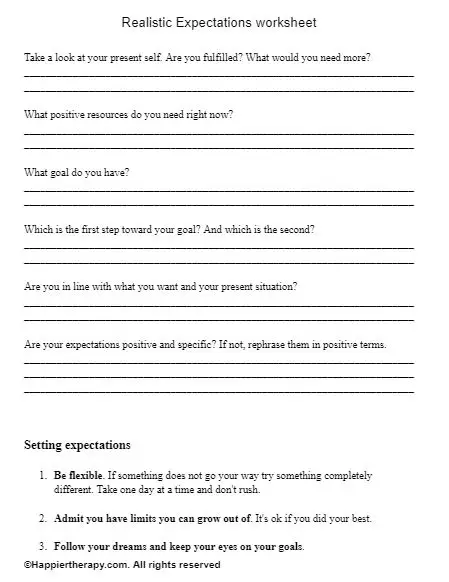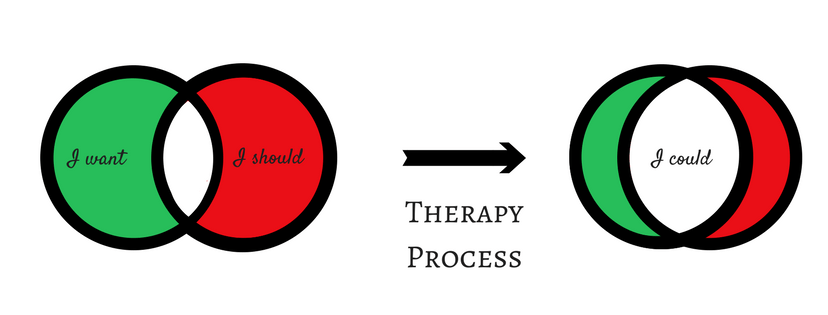

Setting realistic expectations for alternative therapy outcomes is crucial for a positive and successful healing journey. Many people turn to alternative therapies seeking relief from various ailments and well-being enhancements, but understanding the nuances of these treatments is vital. Alternative therapies encompass a broad range of practices, including herbal remedies, acupuncture, massage therapy, and mindfulness techniques, often aiming for holistic healing. This approach often differs from traditional medical models, requiring a shift in perspective and a willingness to embrace a more personalized, patient-centered experience. This article delves into strategies for setting realistic expectations, emphasizing the importance of patience and acknowledging individual variability in progress. We’ll explore why realistic expectations are key, identify common pitfalls, and provide practical guidance for navigating the complexities of alternative therapy. We’ll also discuss the significance of understanding the nuances and complexities of these approaches and maintaining a realistic understanding of healing. We’ll examine how to measure progress realistically, consider how to adjust plans based on individual needs, and importantly, understand that setbacks are part of the process. The structure of the article will cover defining realistic expectations, understanding individual variability, and strategies for managing setbacks.
Defining Realistic Expectations: A Patient-Centered Approach
Understanding the Variability of Outcomes
Alternative therapies, unlike conventional medicine, often don’t offer precise timelines for recovery or universally guaranteed results. The effectiveness of these therapies frequently depends on factors such as individual physiology, lifestyle choices, and the specific nature of the condition being addressed. Patients must approach their healing journey with a realistic understanding of potential outcomes, which often involves recognizing individual variability. For example, one person might experience significant improvement from acupuncture for chronic pain, while another might find the results more subtle and gradual. It’s essential to acknowledge that personalized responses are common. This variability is a crucial factor in setting realistic expectations. Acknowledging that progress is not always linear or immediate is a crucial step towards success.
Recognizing the Holistic Nature of Healing
It’s important to realize that healing isn’t solely about the absence of symptoms. Alternative therapies often focus on holistic well-being, addressing the interconnectedness of mind, body, and spirit. This holistic approach emphasizes the importance of lifestyle factors such as diet, exercise, and stress management, all of which can influence treatment outcomes. Therefore, establishing realistic expectations should encompass the broader spectrum of holistic improvement, recognizing that progress might manifest in various ways, such as improved energy levels, better sleep quality, or a reduced stress response. This aspect of wholistic wellness should be considered in any expectation-setting discussion.
Communicating with Practitioners
Open communication with practitioners is vital in achieving realistic expectations. A detailed discussion about potential outcomes, treatment duration, and individualized support plans are essential. By setting clear expectations and being proactive in communication, you can ensure a collaborative approach that supports your goals. This dialogue should include discussing potential setbacks or challenges proactively, thereby building a strong foundation for mutual understanding.
Related Post : Unsure Which Alternative Therapy is Right for You? Making Informed Choices.
The Role of Patient Motivation and Compliance
Realistic expectations encompass the active participation of the patient. Motivation plays a crucial role in achieving desired outcomes. Consistent adherence to the prescribed therapies and lifestyle modifications are often essential components for optimal results. Recognizing and addressing potential obstacles to compliance is crucial in developing achievable goals. For instance, providing tailored support systems or creating practical strategies can greatly improve success rates.
Setting Measurable Goals
Establishing measurable goals is instrumental in tracking progress and adjusting treatment plans as needed. These goals should be specific, measurable, achievable, relevant, and time-bound (SMART goals). For example, instead of a vague goal like “feeling better,” a patient might set a goal to reduce pain by 50% within two weeks or to improve sleep quality by 20% within a month. This approach enables both the patient and practitioner to monitor progress objectively and track effectiveness
Understanding Individual Variability in Response
Physiological Factors
Individual responses to alternative therapies are significantly influenced by a multitude of physiological factors. Genetic predispositions, current health conditions, and pre-existing sensitivities can affect the body’s response to various treatments. For example, an individual with a history of allergies might experience adverse reactions to certain herbal remedies, highlighting the importance of personalized treatment plans. Understanding these physiological nuances is critical when discussing expectations with a practitioner.
Lifestyle Factors
Lifestyle choices, such as diet, exercise, sleep patterns, and stress levels, play a pivotal role in the effectiveness of alternative therapies. For example, someone who consistently prioritizes unhealthy eating habits and struggles with chronic stress might experience limited improvement despite regular acupuncture sessions. Understanding how lifestyle factors can influence treatment outcomes is essential in setting realistic expectations.
Psychological Factors
Psychological factors also play a pivotal role in how a person responds to alternative therapies. A positive mindset and a supportive environment can significantly impact the effectiveness of treatment. Conversely, unresolved emotional issues or a lack of self-compassion might hinder progress. For instance, a patient facing personal challenges alongside their physical ailments may need a tailored approach to integrate emotional support for optimal results.
Cultural Context
Cultural context can significantly influence beliefs and expectations surrounding healing and well-being. Different cultures have varying approaches to illness and treatment, and these differences need consideration when setting realistic expectations for alternative therapies. For instance, cultural beliefs about the role of diet and exercise in maintaining well-being can influence how an individual approaches these treatments. Understanding these differences is crucial to achieving patient-centered care.
Managing Expectations through Clear Communication
Open communication is paramount. Patients should openly discuss their expectations with therapists, who should provide transparent and realistic assessments of possible results. This creates a shared understanding between patient and practitioner, setting the stage for achievable outcomes.
Strategies for Managing Setbacks and Challenges
Acknowledging Setbacks as Part of the Process
Setbacks are an inevitable part of any healing journey, whether traditional or alternative. Alternative therapies often involve a gradual process of change, and setbacks may occur as the body adjusts to new treatments or lifestyle modifications. It’s essential to view these setbacks as learning opportunities and not as indications of failure. Instead, focus on understanding the underlying cause and adjusting the approach accordingly, rather than abandoning the entire process.
Adapting Treatment Plans
Treatment plans may need adjustments based on individual responses and emerging challenges. Open communication with practitioners is crucial to adjust the plan if needed, and proactively working together on solutions is key. A practitioner can offer insights on how to tailor the treatment plan to address specific needs and limitations.
Maintaining Patience and Persistence
Maintaining patience and persistence is key to navigating challenges on your healing journey. Progress isn’t always linear, and there may be plateaus or periods of slower improvement. These fluctuations should be recognized as temporary rather than permanent setbacks. Focus on the positive steps and continue striving towards your goals.
Seeking Support Systems
Building a support system of family, friends, or support groups can provide encouragement and resilience during challenging times. Sharing your experiences with others going through similar situations can offer validation and practical advice, encouraging continuous effort.
Cultivating a Growth Mindset
Adopting a growth mindset is crucial for navigating setbacks. Embrace challenges and setbacks as opportunities for growth and learning, viewing them as stepping stones toward achieving personal well-being. This attitude can significantly impact motivation and commitment to the healing process.
Measuring Progress Realistically
Identifying Appropriate Metrics
Instead of solely focusing on symptom reduction, consider a broader range of metrics to assess progress. These metrics may include improvements in energy levels, sleep quality, reduced stress responses, enhanced mood, and an overall improvement in quality of life. By acknowledging these holistic indicators, you can gain a more comprehensive understanding of the effectiveness of the treatment.
Tracking Progress Objectively
Use a journal or tracking app to record progress objectively, including symptoms, emotional responses, and any observed changes in lifestyle. This detailed documentation can help you and your practitioner identify patterns and trends, allowing for informed adjustments to the treatment plan.
Setting Realistic Timeframes
Understand that healing processes take time, and unrealistic expectations for rapid results can lead to disappointment. Acknowledge that healing is a dynamic and often gradual process. Concentrate on steady, ongoing progress over quick fixes.
Celebrating Milestones
Acknowledge and celebrate even small steps forward. Recognizing and appreciating progress, no matter how small, reinforces motivation and maintains a positive outlook throughout the journey. Use these milestones to acknowledge the positive impact of alternative treatments on your life.
Seeking Professional Guidance
Seek guidance from qualified professionals in alternative therapies to set realistic goals and track progress effectively. They can provide personalized strategies to assess effectiveness and keep you on track.
Adjusting Treatment Plans Based on Individual Needs
Identifying Individual Needs
Effective treatment plans necessitate a tailored approach, recognizing individual needs and preferences. Consider individual circumstances and preferences when creating a comprehensive, customized plan. For example, consider dietary restrictions, cultural beliefs, or personal preferences when developing treatment strategies.
Seeking Professional Guidance for Adjustments
Qualified practitioners can offer guidance in adapting treatment plans as needed. Openly communicating any adjustments needed with your practitioner is crucial. Seek professional advice from practitioners experienced in alternative therapies.
Flexibility and Open Communication
Embrace flexibility and remain open to discussing changes with your practitioner as your situation evolves. Be willing to make changes as you become more aware of yourself and your body. A good treatment relationship is based on adaptable strategies to accommodate changes.
Considering Lifestyle Adaptations
Incorporating lifestyle adaptations alongside therapeutic techniques is paramount. Adjustments to diet, exercise, stress management, and sleep routines are often essential for optimal results, as these influence the efficacy of alternative therapies. If adjustments are needed, work with your practitioner to determine the right changes.
Acknowledging the Importance of Patience
Be patient throughout the entire process and realize that change takes time. Alternative therapies frequently necessitate patience and persistence to achieve desired outcomes. Accept that change may be gradual, and remain focused on the long-term benefits.
In conclusion, setting realistic expectations for alternative therapy outcomes is paramount to a positive and sustainable experience. By understanding the nuanced nature of these therapies and acknowledging the inherent variability in individual responses, patients can approach their journeys with greater hope and patience. Remember, progress, even small steps, is progress. Ultimately, consistency and dedication, coupled with a realistic understanding of potential outcomes, are key ingredients for achieving personal well-being. If you’re considering alternative therapy, open communication with your practitioner is crucial. Seek out therapists who are transparent about potential limitations, emphasizing that healing is a personalized and multifaceted process.